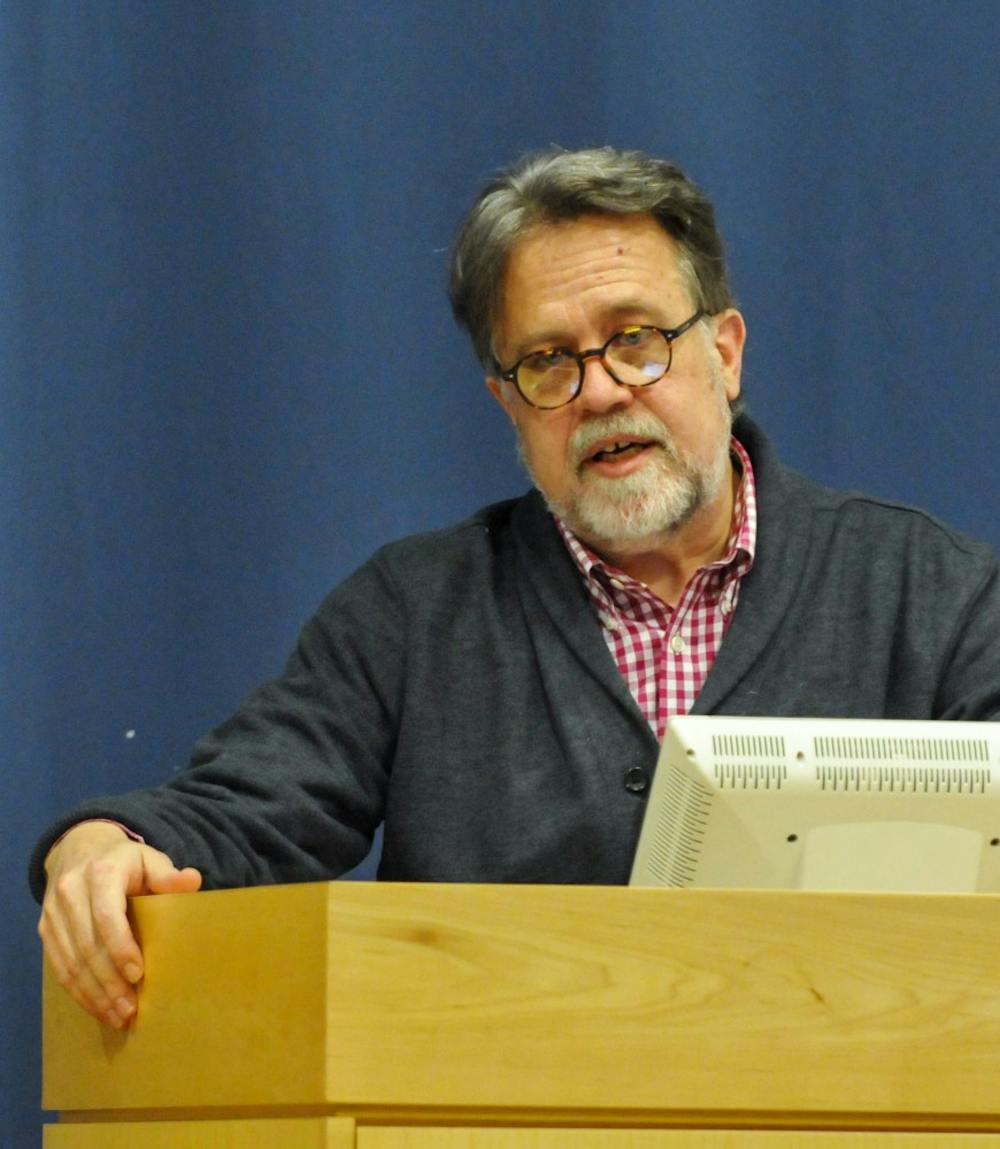Citizens have a responsibility to be well-informed in order to keep the government in check, New York Times editorial page editor Andrew Rosenthal said in a lecture on campus Tuesday evening. In a time when the oversight of governmental programs is internal, he said, other means are necessary to keep governmental bodies in check.
“People of privilege, which we all are, have a responsibility to remain engaged and to be informed, and I just think it’s becoming harder to do that. The more information there is, the harder it is to do that,” Rosenthal noted. He warned that people should be cautious about their sources of information, adding that we live in an “age of gleeful information,” in which both correct and incorrect information are of equal value and incorrect information is often passed by propaganda as news.
Likewise, he added that “the number of people that actually read things for themselves is small,” citing that the amount of traffic driven to The New York Times website from social media is small because few people actually click on the link.
“We need to be more involved, and it means reading more,” Rosenthal said. He noted that people usually don’t read websites they disagree with but instead go to outlets that confirm what they already believe. When people do read outside their comfort zone, Rosenthal said he finds that readers often do not read the entire article. He explained that he has encountered commenters who misrepresent his arguments and then attack their misrepresentation of his work.
Rosenthal shared a quotation from a friend of his regarding the current public attitude toward information: “We live in an age in which truth is considered to be a multiple-choice question.”
He also shared his concerns that the Internet threatens the freedom of the press. The Times made “a catastrophic mistake,” he said, when it made online content free from its web launch in 1996until creating its paywall in 2011. Had they not finally launched the paywall, he said there would have been many layoffs at the paper.
“The idea that the Internet is free at all is nonsense. It’s not free at all,” Rosenthal said. “The only thing that’s free online is news, and we agreed to that. And it’s stupid.”
The mainstream media is under siege not only because it is almost impossible to make money online, but also because there are groups around the world that can shut down a website just because they do not like it, Rosenthal said.

He cited the litigation that occurred when President Richard Nixon tried to suppress The New York Times’ 1971 publication of the Pentagon Papers while Rosenthal’s father, A.M. Rosenthal, was its managing editor. The episode led to the Supreme Court’s landmark decision in New York Times Co. v. United States, in which the Court upheld the Times’ right to publish under the First Amendment.
During the audience question-and-answer session following the lecture, Rosenthal said that he likes his current job and does not have plans to seek the position that his father formerly held.
Rosenthal has been the editorial page editor of The New York Times since 2007; he oversees the editorial board, the op-ed page and letters to the editor. Prior to this position, he served as managing editor for news, the foreign editor, national editor and a Washington correspondent.
His lecture, “The Facts About Opinion,” was delivered on Tuesday evening in the Whig Hall Senate Chamber and was sponsored by the American Whig-Cliosophic Society.









